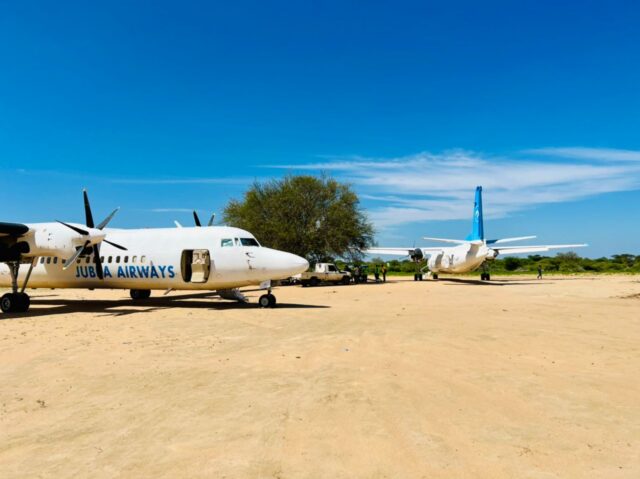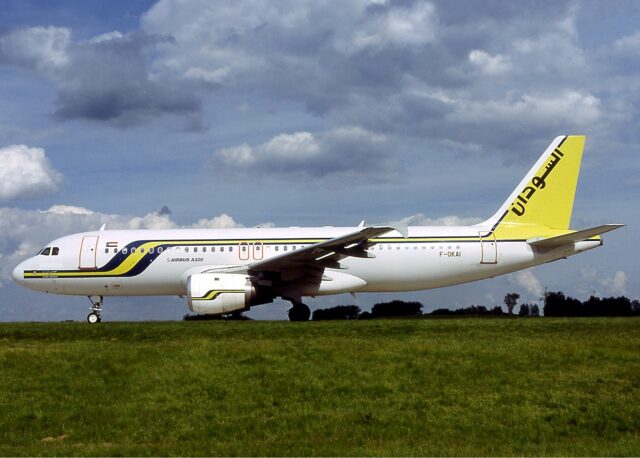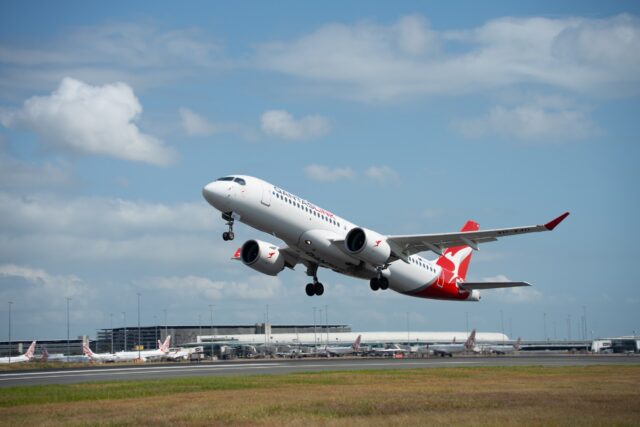US cancels 13 Mexican airline routes over competition concerns

October 29, 2025

The US Department of Transportation (DOT) has formally revoked approval for 13 routes operated or proposed by Mexican airlines to the United States, citing an “ongoing competitive imbalance” and violations of the 2015 US–Mexico Air Transport Agreement.
The Department of Transportation issued Order 2025-10-13 on October 28, cancelling all combined passenger and cargo flights between Felipe Ángeles International Airport (NLU) and US destinations. It also disapproves of 11 additional route applications by Aeroméxico, Volaris, and Viva Aerobus.
Putting America First in the skies
The order follows previous warnings from the Trump administration over anti-competitive actions by Mexico’s government and aviation authorities. These include previous slot cuts at Mexico City International Airport (MEX) and the relocation of cargo operations from MEX to Felipe Ángeles International Airport (NLU).

“Joe Biden and Pete Buttigieg deliberately allowed Mexico to break our bilateral aviation agreement,” said US Transportation Secretary Sean P. Duffy in a statement issued this past July.
“That ends today. Let these actions serve as a warning to any country who thinks it can take advantage of the US, our carriers, and our market. America First means fighting for the fundamental principle of fairness.”
What the latest DOT order covers
In the 10-page order, the DOT rescinded Aeroméxico’s operating authority for its NLU–Houston (IAH) and NLU–McAllen (MFE) services effective November 7, 2025. It also denied approval for 11 additional routes that had been scheduled to launch before year-end.
These include Aeroméxico and Volaris flights from MEX to San Juan and Newark, and Viva Aerobus routes from NLU to Austin, New York JFK, Chicago O’Hare, Dallas/Fort Worth, Denver, Houston, Los Angeles, Miami, and Orlando.

The order also freezes further expansion of passenger or cargo services from Mexico City’s two airports “until further notice” and places restrictions on belly freight on passenger aircraft. The department said the measures are necessary to protect “the public interest” and address a “competitive imbalance” in the US–Mexico aviation market.
How the US-Mexico aviation dispute escalated
In 2023, the Mexican government mandated all-cargo carriers to transfer their operations from Benito Juárez International (MEX) to Felipe Angeles International Airport (NLU).
The new airport north of Mexico City was built on the former Santa Lucia Air Force Base to relieve congestion at MEX. While the airport supports both cargo and passenger operations, it is less convenient for passenger services due to its remote location from the capital. US operators argued that the move disrupted commercial freight flows and violated the bilateral agreement’s competition clause.
US regulators have repeatedly raised concerns about opaque slot-allocation practices at MEX, where officials cut total operations from 61 to 52 per hour, then to 43, reducing access for US airlines. The DOT contends that these restrictions — coupled with preferential treatment for local airlines — created a market imbalance.
DOT’s previous warnings to Mexico and related actions
The DOT’s recent orders reflect the DOT’s new enforcement approach under Duffy, in line with the Trump administration’s “America First” policy.
The October 28 order follows a series of earlier enforcement steps. In DOT Order 2025-7-10, issued in July, the department required Mexican carriers to submit detailed US schedules and file all large charter applications for advance approval.

Also in July, DOT Order 2025-7-12 proposed withdrawing antitrust immunity and terminating the Delta Air Lines–Aeroméxico joint venture. The DOT said the JV gave the carriers uncompetitive dominance on U.S.–Mexico City routes and also cited a lack of transparency in airport slot allocation. The DOT ordered the end of the joint venture in September, with the change taking effect January 1, 2026, unless the carriers obtain fresh approval.
Economic and operational implications
The order is a significant setback for Mexican carriers. Viva Aerobus had planned to expand from NLU to major US gateways. Aeroméxico and Volaris may need to redeploy aircraft to domestic or Latin American routes if the restrictions persist.

The freeze on “belly-cargo” operations could disrupt freight flows between Mexico City and the US, increasing costs for logistics providers and manufacturers reliant on just-in-time supply chains.
While the DOT’s order primarily punishes Mexican carriers, it could also affect US airlines if Mexico retaliates by limiting new permits or delaying slot access for American, Delta, or United.
Industry and government reactions
Mexico’s Ministry of Infrastructure, Communications and Transportation (SICT) and its civil aviation authority have not issued a formal response. Former Mexican President Andrés Manuel López Obrador previously defended slot reductions at MEX as necessary for safety and to relieve congestion.
In the US, cargo carriers and trade groups such as the Cargo Airline Association have welcomed the move. Responding to Duffy’s announcement in July, Lauren Beyer, President of the Cargo Airline Association, said it, “sends a clear and necessary message: the United States will not tolerate unfair, anti-competitive behaviour that is counter to the tenets of the U.S. Open Skies framework and harms American businesses.” Beyer thanked Secretary Duffy for “defending the rights of US carriers.”
Delta, however, has filed court challenges to the related joint-venture order, calling it “arbitrary and capricious” and warning it could lead to the loss of up to $800 million in annual consumer benefits.
What happens next over the US and Mexican skies
Once the US government determines that fair competition has been restored, the DOT may reconsider disapprovals. Mexican guarantees of slot transparency, capacity allocation, and equal treatment of US carriers would likely be required for a reversal.
Until then, affected airlines must re-accommodate passengers and cargo customers while revising their US network strategies. There is potential for compromise as both governments weigh the economic importance of the US–Mexico aviation corridor.
Featured Image: Tomás Del Coro | Wikimedia Commons
















